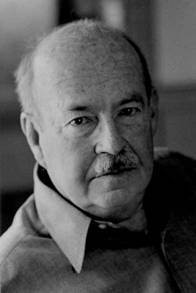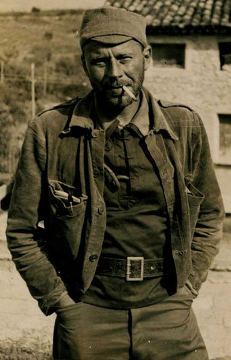Related Research Articles

Talcott Parsons was an American sociologist of the classical tradition, best known for his social action theory and structural functionalism. Parsons is considered one of the most influential figures in sociology in the 20th century. After earning a PhD in economics, he served on the faculty at Harvard University from 1927 to 1973. In 1930, he was among the first professors in its new sociology department. Later, he was instrumental in the establishment of the Department of Social Relations at Harvard.
Texaco, Inc. is an American oil brand owned and operated by Chevron Corporation. Its flagship product is its fuel "Texaco with Techron". It also owned the Havoline motor oil brand. Texaco was an independent company until its refining operations merged into Chevron, at which time most of its station franchises were divested to Shell plc through its American division.

Chevron Corporation is an American multinational energy corporation predominantly specializing in oil and gas. The second-largest direct descendant of Standard Oil, and originally known as the Standard Oil Company of California, it is headquartered in San Ramon, California, and active in more than 180 countries. Within oil and gas, Chevron is vertical integrated and is involved in hydrocarbon exploration, production, refining, marketing and transport, chemicals manufacturing and sales, and power generation.
Parsons School of Design, known colloquially as Parsons, is a private art and design college located in the Greenwich Village neighborhood of New York City. Founded in 1896 after a group of progressive artists broke away from established Manhattan art academies in protest of limited creative autonomy, Parsons is one of the oldest schools of art and design in New York.

Ransom Eli Olds was a pioneer of the American automotive industry, after whom the Oldsmobile and REO brands were named. He claimed to have built his first steam car as early as 1887 and his first gasoline-powered car in 1896. The modern assembly line and its basic concept is credited to Olds, who used it to build the first mass-produced automobile, the Oldsmobile Curved Dash, beginning in 1901.

Alvah Cecil Bessie was an American novelist, journalist and screenwriter who was blacklisted by the movie studios for being one of the Hollywood Ten who refused to testify before the House Un-American Activities Committee. He was a member of the Communist Party USA and participated in paramilitary activity as part of the Comintern's International Brigades during the Spanish Civil War.

Walter Dill Scott was an American psychologist and academic administrator who was one of the first applied psychologists and the 10th president of Northwestern University. He applied psychology to various business practices such as personnel selection and advertising.
The Advertising Club of New York, also known as The Ad Club and originally called the Sphinx Club, is an advertising industry group promoting self-regulation, professional training and good fellowship. The Advertising Club of New York is the only organization to bring the industry together across all disciplines – marketing, media and agencies – in the name of exchanging ideas and best practices for business and thought leadership. The Club offers the community access to conversations and key influencers, inspiration and recognition for creativity, innovative training for professional development, and networking and diversity initiatives.
Crain Communications Inc is an American multi-industry publishing conglomerate based in Detroit, Michigan, United States, with 13 non-US subsidiaries.
Chilton Company is a former publishing company, most famous for its trade magazines, and automotive manuals. It also provided conference and market research services to a wide variety of industries. Chilton grew from a small publisher of a single magazine to a leading publisher of business-to-business magazines, consumer and professional automotive manuals, craft and hobby books, and a large, well-known marketing research company.

Leta Stetter Hollingworth was an American psychologist, educator, and feminist. Hollingworth also made contributions in psychology of women, clinical psychology, and educational psychology. She is best known for her work with gifted children.

Harry Levi Hollingworth was one of the first psychologists to bring psychology into the advertising world, as well as a pioneer in applied psychology.

The Tiger's Trail is a 1919 American adventure film serial starring Ruth Roland, directed by Robert Ellis, Louis J. Gasnier and Paul Hurst. A "fragmentary print" from the serial survives.
Clement O. Miniger was an American industrialist and philanthropist. He founded the 'Electric Auto-Lite Company' in 1911, acting as the company's president until 1934 and its chairman of the board from 1934 to 1944.
Automotive News is a weekly newspaper written for the automotive industry, predominantly individuals corresponding with automobile manufacturers and automotive suppliers. Based in Detroit and owned by Crain Communications Inc, Automotive News is deemed to be the newspaper of record for the automotive industry. The brand has a team of more than 55 editors and reporters globally.

John La Gatta, also spelled LaGatta, was an advertising illustrator active during the first half of the 20th century.

Nelson Ludington was a nineteenth-century American businessman, lumber baron and banker. Born in Ludingtonville, New York, he made his fortune in the Midwest based on resource exploitation: lumber, iron ore and copper.
Lee Galloway was an American educator, publisher, and organizational theorist. He was Professor in the School of Finance and Commerce at the New York University, and co-founders of The National Association of Corporation Schools, predecessor of the American Management Association.

John Mason Loomis was a nineteenth-century American businessman and lumber tycoon from Chicago who was known for developing the city of Ludington, Michigan. He was involved with the Pere Marquette Lumber Company, which also operated salt distilleries that in turn influenced the salt industry of northern Michigan. The village of Pere Marquette benefited from these local industries and developed into the city Ludington.

George Woodward Hotchkiss was an American nineteenth-century businessman and journalist who wrote about the lumber industry. He was co-founder and editor of several newspapers, including what the Journal of Forest History has considered to be North America's first lumber newspaper, Lumberman's Gazette. He contributed to the publication of a manual on the timber trade, which sold 40,000 copies. In 1898 he published the book History of the Lumber and Forest Industry of the Northwest. In the view of one 1920s author, Hotchkiss was the "father" of lumber periodicals.
References
- 1 2 3 Harry Tipper, 61, Rubber Firm Aide. New York Times, Thursday, May 8, 1941.
- ↑ Harry Tipper (1925) Copy That Is and Isn’t. In, J. George Frederick, Masters Of Advertising Copy. Routledge, pp.285-300.
- ↑ Advertising. Texaco.
- 1 2 Harry Tipper (1919) Wage Questions Must Be Handled from Inside the Industrial Unit. Automotive Industries, Vol. XI, Number 2, January 9, pp62-3.
- 1 2 Harry Tipper (1919) Industrial Development Depends Upon Partnership of Capital, Management and Labor. Automotive Industries, Vol. XI, Number 13, March 27, pp689-90.